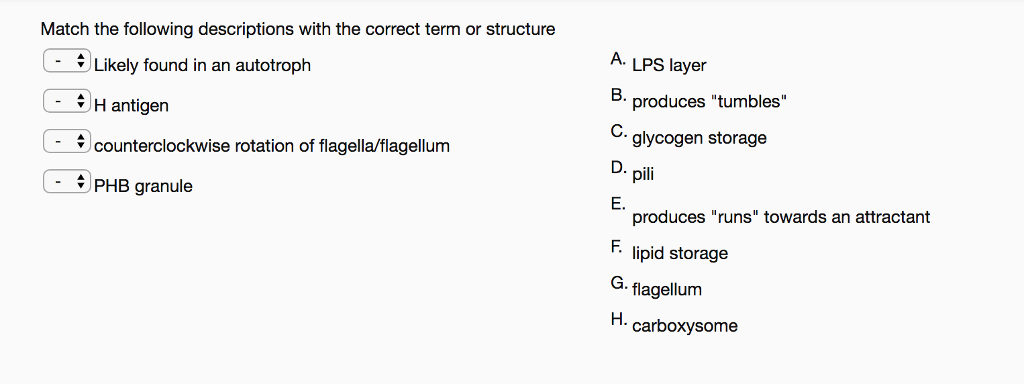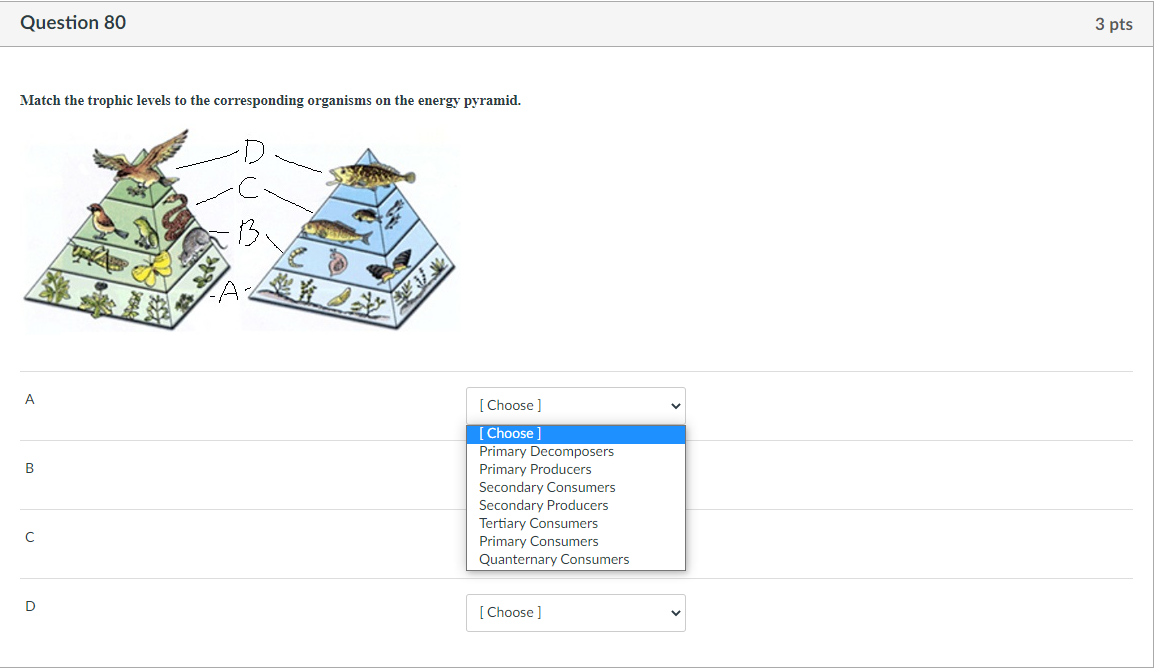AP®︎/College Biology > Ecology > Energy flow through ecosystems Food chains & food webs How food chains and food webs represent the flow of energy and matter. Trophic levels and efficiency of energy transfer. Key points: Producers, or autotrophs, make their own organic molecules.
Spring 2018 SURF posters by kccstem – Issuu
Each of the categories above is called a trophic level, and it reflects how many consumption steps separate an organism from the food chain’s original energy source, such as light.However, in most ecosystems, energy flow is much more complicated than a linear chain. In this case, a food web can be used to represent these feeding interactions between trophic levels.

Source Image: savemyexams.com
Download Image
A trophic level is the group of organisms within an ecosystem which occupy the same level in a food chain. There are five main trophic levels within a food chain, each of which differs in its nutritional relationship with the primary energy source.

Source Image: quizlet.com
Download Image
Chapter 57, 58, 59.3-4 Practice Flashcards | Quizlet Lesson 5: Trophic levels. Flow of energy and matter through ecosystems. Food chains & food webs. Example identifying roles in a food web. Energy flow and primary productivity. Trophic levels review. Trophic levels. Science >. High school biology >.

Source Image: chegg.com
Download Image
Match The Following Descriptions With The Appropriate Trophic Level.
Lesson 5: Trophic levels. Flow of energy and matter through ecosystems. Food chains & food webs. Example identifying roles in a food web. Energy flow and primary productivity. Trophic levels review. Trophic levels. Science >. High school biology >. A trophic level refers to a step in a nutritive series or food chain in an ecosystem. Simply speaking, the trophic level of an organism is the number of steps it is from the point when the food chain begins. Furthermore, the classification of organisms of a chain is into these levels according to their feeding behaviour.
Solved Match the following descriptions with the correct | Chegg.com
Science Biology Biology questions and answers Classify the following descriptions into the appropriate trophic level. This problem has been solved! You’ll get a detailed solution from a subject matter expert that helps you learn core concepts. See Answer Question: Classify the following descriptions into the appropriate trophic level. Sandwalk: A Torley Defense of Irreducible Complexity

Source Image: sandwalk.blogspot.com
Download Image
IGCSE Summary of Biology Science Biology Biology questions and answers Classify the following descriptions into the appropriate trophic level. This problem has been solved! You’ll get a detailed solution from a subject matter expert that helps you learn core concepts. See Answer Question: Classify the following descriptions into the appropriate trophic level.

Source Image: studylib.net
Download Image
Spring 2018 SURF posters by kccstem – Issuu AP®︎/College Biology > Ecology > Energy flow through ecosystems Food chains & food webs How food chains and food webs represent the flow of energy and matter. Trophic levels and efficiency of energy transfer. Key points: Producers, or autotrophs, make their own organic molecules.

Source Image: issuu.com
Download Image
Chapter 57, 58, 59.3-4 Practice Flashcards | Quizlet A trophic level is the group of organisms within an ecosystem which occupy the same level in a food chain. There are five main trophic levels within a food chain, each of which differs in its nutritional relationship with the primary energy source.

Source Image: quizlet.com
Download Image
Solved Question 80 3 pts Match the trophic levels to the | Chegg.com Trophic Levels. The feeding positions in a food chain or web are called trophic levels. The different trophic levels are defined in the Table below. Examples are also given in the table. All food chains and webs have at least two or three trophic levels. Generally, there are a maximum of four trophic levels. Trophic Level.

Source Image: chegg.com
Download Image
BishopBlog: What is educational neuroscience? Lesson 5: Trophic levels. Flow of energy and matter through ecosystems. Food chains & food webs. Example identifying roles in a food web. Energy flow and primary productivity. Trophic levels review. Trophic levels. Science >. High school biology >.

Source Image: deevybee.blogspot.com
Download Image
CSIR Lifesciences: CSIR Lifesciences December 2013 part C solved A trophic level refers to a step in a nutritive series or food chain in an ecosystem. Simply speaking, the trophic level of an organism is the number of steps it is from the point when the food chain begins. Furthermore, the classification of organisms of a chain is into these levels according to their feeding behaviour.

Source Image: csirlifesciencez.blogspot.com
Download Image
IGCSE Summary of Biology
CSIR Lifesciences: CSIR Lifesciences December 2013 part C solved Each of the categories above is called a trophic level, and it reflects how many consumption steps separate an organism from the food chain’s original energy source, such as light.However, in most ecosystems, energy flow is much more complicated than a linear chain. In this case, a food web can be used to represent these feeding interactions between trophic levels.
Chapter 57, 58, 59.3-4 Practice Flashcards | Quizlet BishopBlog: What is educational neuroscience? Trophic Levels. The feeding positions in a food chain or web are called trophic levels. The different trophic levels are defined in the Table below. Examples are also given in the table. All food chains and webs have at least two or three trophic levels. Generally, there are a maximum of four trophic levels. Trophic Level.